Swiss rescuers leave Japan “with heavy hearts”
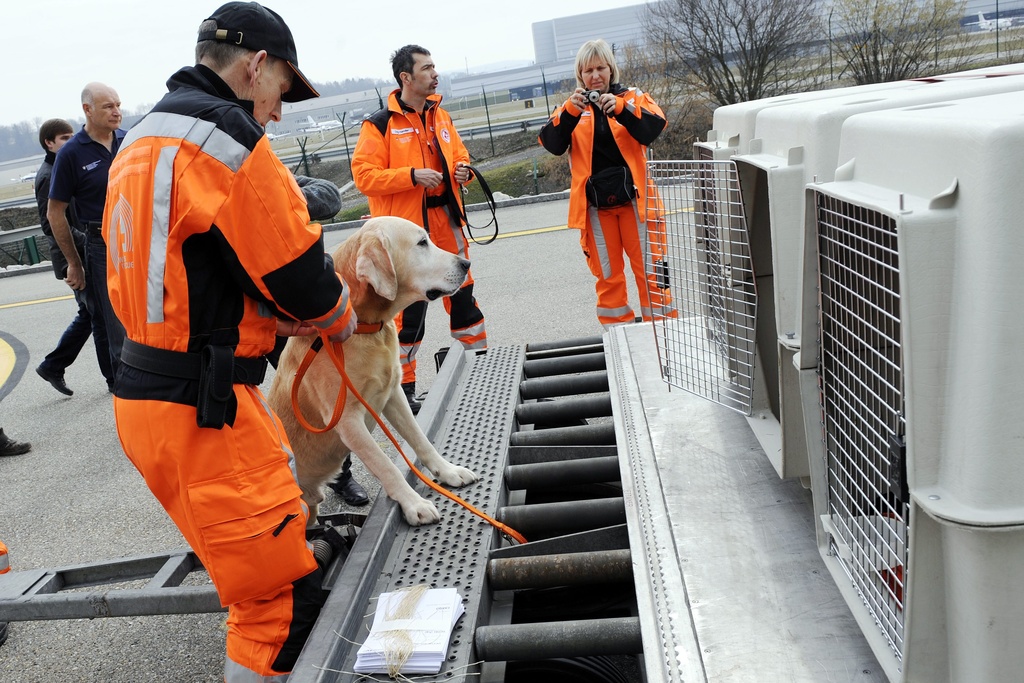
The Swiss rescuers sent to Japan last weekend to help in the aftermath of the earthquake and tsunami have handed over to local teams and are preparing to return home.
The Swiss Agency for Development and Cooperation (SDC) said on Wednesday that Swiss rescue dogs had located one person on Tuesday, and Austrian and New Zealand rescuers had started the retrieval operation.
swissinfo.ch spoke to team leader Ernst Bosshard in the northern town of Misawa as he waited there to fly home.
He explained that his team had been based in a camp in the town of Tome, which appeared more or less unscathed. But it was a very different story in the villages about 30 kilometres to the north, where the damaged buildings had subsequently been battered by the tsunami.
swissinfo.ch: What did your mission achieve?
Ernst Bosshard: The local people were very glad that we were there.
Unfortunately for various reasons it was not possible to work as much with the dogs as we had hoped.
On the one hand that was because we kept getting alarms. One day, just as we were getting to the site of operations there was a tsunami warning. And then towards the end it snowed very heavily, making it too dangerous for the dogs and people to enter the ruins.
swissinfo.ch: Are there any survivors under the ruins?
E.B.: Since we were operating in the tsunami area, I don’t think so, because huge amounts of water and mud have washed over the villages. That’s my personal opinion.
swissinfo.ch: How does the situation in Japan compare with other places you have been?
E.B.: No comparison. In the places where we were I didn’t see any ruins or collapsed houses – only tsunami damage. Houses washed away, houses destroyed by water and mud. Not like a mission when you have an earthquake without a tsunami.
swissinfo.ch: When you see something like that, you must lose hope, whereas there is always hope in an earthquake area.
E.B.: Of course hope is the last thing to die. We never give up hope, we always hope for a miracle, but the hope is very small.
swissinfo.ch: Did you have to coordinate with teams from other countries?
E.B.: In the same camp we had the THW [German technical emergency service], and yesterday teams came from Australia and New Zealand.
The plan was that we should work together this morning. But since there was quite a lot of fresh snow we had to cancel this joint operation.
swissinfo.ch: People here may be a bit surprised that the Swiss went so far and are coming back so soon.
E.B.: When safety considerations mean it’s no longer possible to work, and there is very little hope of finding survivors, then there is nothing to be gained from having injured dogs or injured handlers, or any of the rest of us injured. That doesn’t help anyone, neither the local people nor us.
At some point you have to say: I can no longer take responsibility for this. We have to leave, with a heavy heart. We practise and train for years to ensure that our dogs are up to it. We come here to help, to locate people, to rescue them. So it’s tough when you have to take such a decision.
swissinfo.ch: What is the mood like amongst the locals?
E.B.: I can’t tell you exactly, but I can say that all those who saw us were very polite and very grateful. They showed it through gestures and words that of course we couldn’t understand. But the gestures showed their gratitude.
swissinfo.ch: Did you have the impression that they were frightened?
E.B.: No. We spoke to a local who told us that the people are very calm and patient. Almost everywhere in the tsunami area is without either power or water.
swissinfo.ch: What about you?
E.B.: In our camp we had no power or running water. We had to bring it all in. Our power came from emergency generators. And we couldn’t just fill up our vehicles at the nearest petrol station. We had to drive some way to get fuel. It’s a vicious circle.
swissinfo.ch: Why do you, personally, do this?
E.B.: I came to it through my job as a dog handler. Back in the army I was a rescue dog handler, although I’m not a handler here but a team leader. Despite the huge amount of effort it takes, I like being able to help fellow human beings and to do something good with an animal.
It takes up a lot of time – and it’s not cheap. We pay for the training and everything, and now when we are on a mission we get the same amount of money that we would if we were working. No more than that.
swissinfo.ch: You must see things that are unbearable. How do you cope with that?
E.B.: You can distance yourself. During the long training you are always speaking with colleagues and friends who have already been on missions. And we have a briefing before we go, to prepare us as far as possible as to what we can expect.
During the mission it’s important that we keep talking about it to each other. And back home it’s very important to be able to talk about it with family and friends. In that way you can get through it relatively well.
On Wednesday the number of dead was put officially at just under 4,300.
Estimates of the number of missing vary widely. The police put it at just over 8,000, while Prime Minister Naoto Kan said it is more than 10,000.
Japanese media say more than 15,000 people are unaccounted for in the affected areas.
The mayor of Ishinomaki (pop. 164,300) said on Wednesday that 10,000 people had probably been killed in his town alone.
About 450,000 people are staying in temporary shelters.
The misery of survivors has been compounded by heavy snowfall.
The situation in the damaged Fukushima nuclear power facility is still not under control. There are fears that large amounts of radiation could escape.
Switzerland has advised its citizens to leave north-east Japan and Tokyo, because of the uncertainly over the fate of the reactor, and the possibility of further tremors.
In a rare address to his people, Japan’s Emperor Akihito has said he is “deeply worried” about the crisis his country is facing.
Some of the most devastating earthquakes in recent times struck last year.
The largest quakes in Haiti, Chile and New Zealand claimed well over 200,000 lives, almost exclusively in Haiti, and caused an estimated $50 billion (SFr46.7 billion) in damage to the economy.
Losses varied substantially across affected regions. In the case of Chile and New Zealand, events showed that strict implementation of building codes saved lives by significantly reducing building damage.
On a worldwide basis, natural disasters cost insurers $22 billion in 2009. However, compared with previous years, 2009 was a low loss year.
Historically,disaster losses have been highly volatile, but with a strong upward trend.
(source: Swiss Re, Zurich)

In compliance with the JTI standards
More: SWI swissinfo.ch certified by the Journalism Trust Initiative

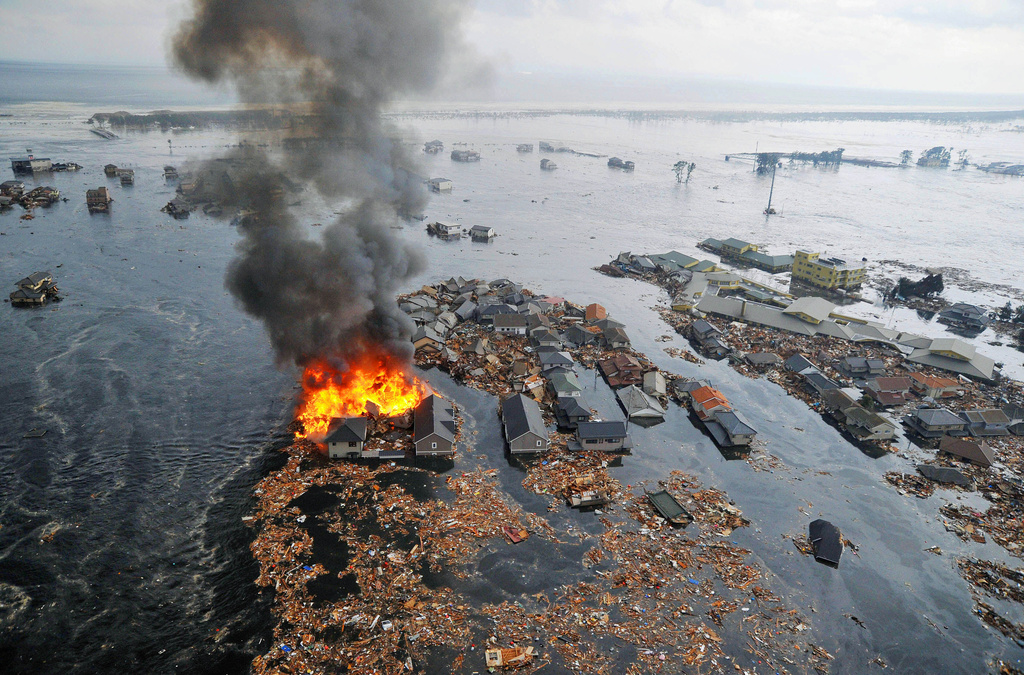
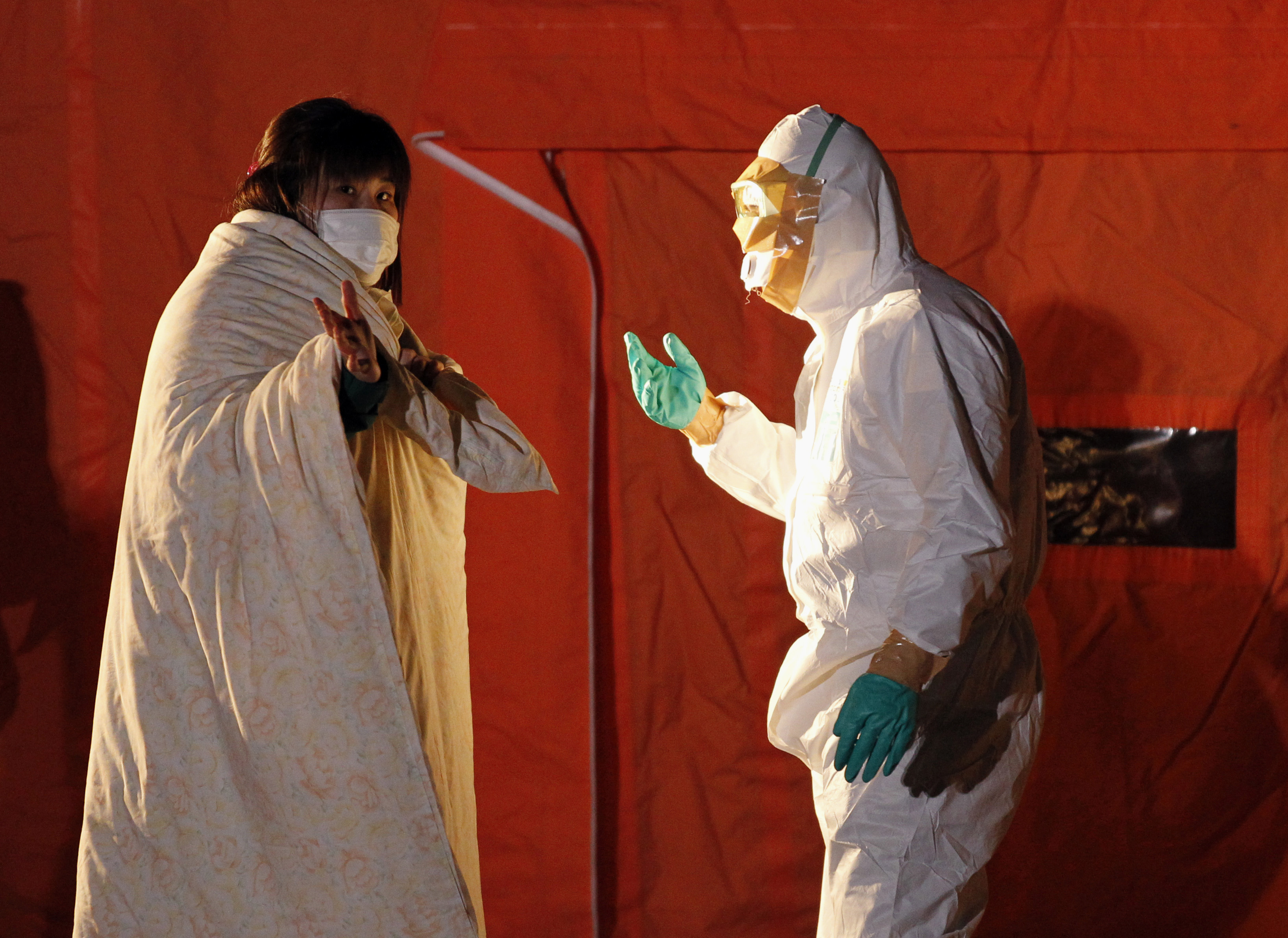

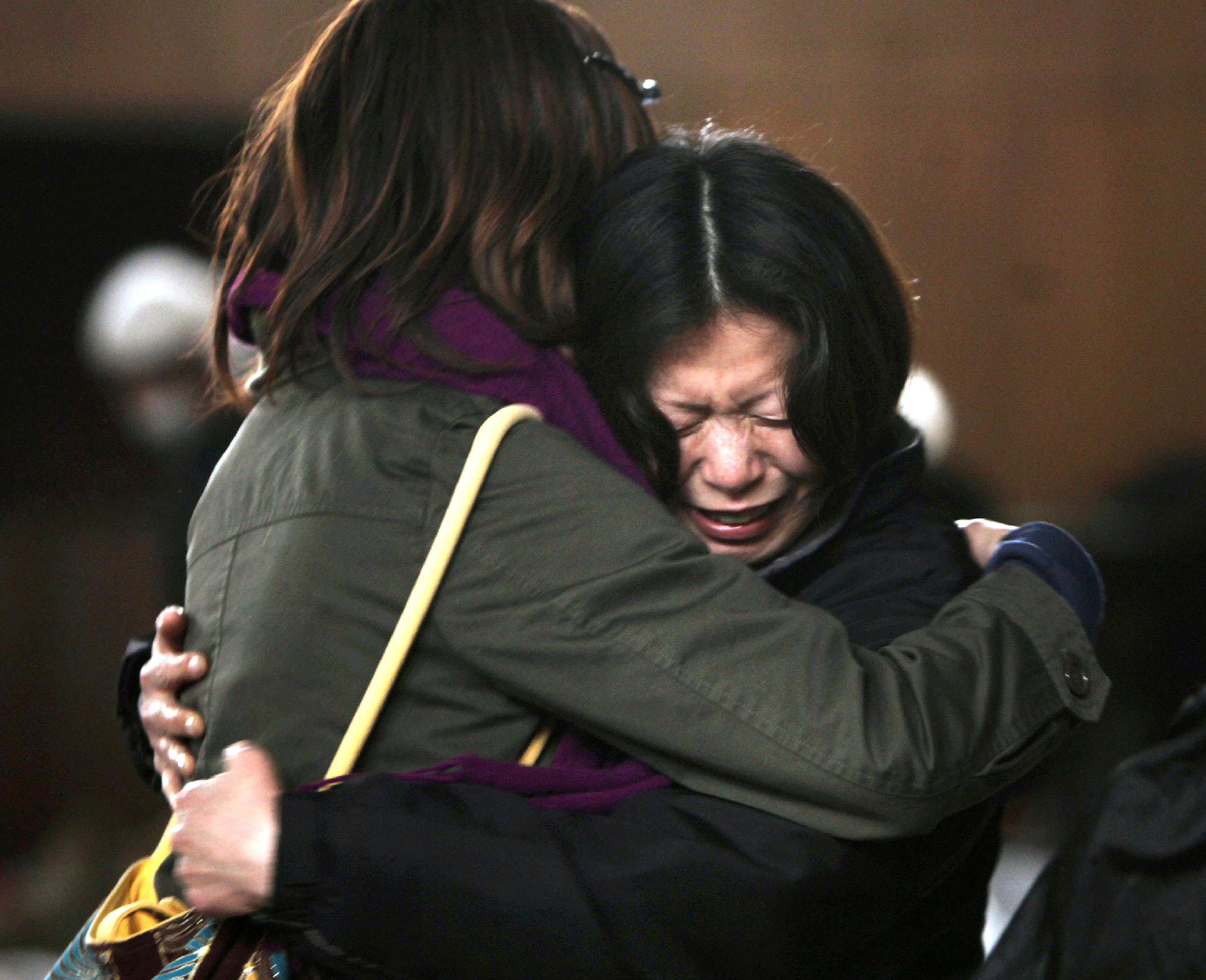
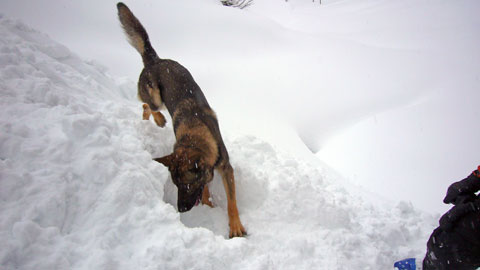
You can find an overview of ongoing debates with our journalists here . Please join us!
If you want to start a conversation about a topic raised in this article or want to report factual errors, email us at english@swissinfo.ch.